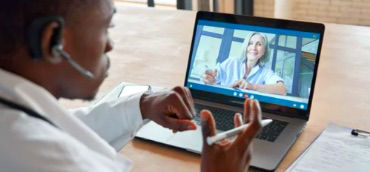Publications
Communities of Illinois will achieve and maintain optimal health and safety.
About IDPH
Department Overview
In Illinois, if you have eaten at a restaurant ... required hospital or nursing home care ... vacationed at a campground or swam at a public beach or pool ... drank a glass of milk ... got married or divorced ... had a baby, the Illinois Department of Public Health (IDPH) has touched your life in some important way.
Assuring the quality of our food, setting the standards for hospital and nursing home care, checking the safety of recreation areas, overseeing the inspection of milk producing farms and processing plants, maintaining the state's vital records and screening newborns for genetic diseases are just some of the duties of IDPH.
In fact, IDPH has 200 different programs that benefit each state resident and visitor, although its daily activities of maintaining the public's health are rarely noticed unless a breakdown in the system occurs. With the assistance of local public health agencies, these essential programs and services make up Illinois' public health system, a system that forms a frontline defense against disease through preventive measures and education. Public health has provided the foundation for remarkable gains in saving lives and reducing suffering. Today, life expectancy is 80 years for women and 74 years for men compared with fewer than 50 years at the at the beginning of the 20th century.
In the past, IDPH directed state efforts to control smallpox, cholera and typhoid, virtually eliminated polio, reduced dental decay through fluoridation of community water supplies, and corrected sanitary conditions that threatened water and food supplies.
Today, IDPH has programs to deal with persistent problems that require continued vigilance – infectious diseases, such as AIDS (acquired immunodeficiency syndrome), HIV (human immunodeficiency virus), SARS (severe acute respiratory syndrome) and meningococcal disease; foodborne and communicable diseases, such as E. coli 0157: H7, monkeypox, salmonella and West Nile virus; vaccine preventable diseases; lead poisoning; lack of health care in rural areas; health disparities among racial groups, breast, cervical and prostate cancer; Alzheimer's disease; and other health threats -- sexually transmitted diseases, tobacco use, violence, and other conditions associated with high-risk behaviors. In addition, IDPH has been charged with handling the state's response to the COVID-19 pandemic and the threat of bioterrorism.
IDPH, which is one of the state's oldest agencies, was first organized in 1877 with a staff of three and a two-year budget of $5,000. IDPH, now has an annual budget of $2.9 billion in state and federal funds, headquarters in Springfield and Chicago, seven regional offices located around the state, three laboratories, and 1,200 employees.
IDPH is organized into 12 offices, each of which addresses a distinct area of public health. Each office operates and supports numerous ongoing programs and is prepared to respond to extraordinary situations as they arise.
IDPH Vision
Illinoisans empowered and supported to achieve their optimal health with dignity and acceptance in diverse and thriving communities.
Mission Statement
The Illinois Department of Public Health is an advocate for and partner with the people of Illinois to re-envision health policy and promote health equity, prevent and protect against disease and injury, and prepare for health emergencies.
Department Overview
Guiding Principles
We, as a diverse public health workforce, care about the well-being of people and are guided by the following principles:
- Prevention of disease and injury
- Protection of food, water, air and environment
- Promotion of safe and healthy communities
- Scientific approaches to analyzing and solving problems
- Partnership and collaboration to achieve coordinated response to community health issues
- Population-based strategies to address public health issues
- Individual responsibility as important to achieving healthy lifestyles
- Advocacy for public health policies to improve the health of populations
- Recognition of the unique value and needs of diverse populations
- Innovation as essential to the practice of public health
Ngozi O. Ezike, MD
Dr. Ngozi Ezike is the Director of the Illinois Department of Public Health (IDPH), the first Black woman appointed to lead the 143-year old state agency. Dr. Ezike is a board-certified internist and pediatrician who previously worked for Cook County Health (CCH), the hospital and healthcare system addressing the needs of the residents of Cook County, for more than 15 years. She also was medical director at the Cook County Juvenile Temporary Detention Center.
Prior to joining CCDPH, Dr. Ezike served as Austin Health Center medical director, where she actively engaged with the community on a variety of health initiatives. She also has delivered inpatient care at Stroger Hospital and primary and preventive care in community and school-based clinics.
Dr. Ezike is a nationally recognized expert in the area of healthcare within the juvenile detention and justice systems. A graduate of Harvard University and the University of California, San Diego School of Medicine, she is a Certified Correctional Health Professional and Diplomate of both the American Board of Internal Medicine and the American Board of Pediatrics. She is also an Assistant Professor of Pediatrics at Rush Medical College.
She is the recipient of several honorary doctorates from Southern Illinois University, Rosalind Franklin University of Medicine and Science, and Knox College, and numerous awards including the University of St. Francis’ Sister Clare of Assisi Award, the 2020 Excellence in Public Service Award from the Motorola Solutions Foundation, the Lester H. McKeever Individual Service Award from the Chicago Urban League, and the Health Innovator Award from Erie Family Health Center.
An advocate for maintaining work-life balance, particularly in challenging times, Dr. Ezike is an avid tennis player and reader, and is fluent in Spanish and French.
Director Sameer Vohra, MD, JD, MA
Sameer Vohra, MD, JD, MA, was appointed as the director of the Illinois Department of Public Health, effective August 1, 2022, by Governor JB Pritzker. Dr. Vohra is a general pediatrician who holds degrees in law and public policy. He is a cross-disciplinary leader in state and national health policy formulation, and his recent focus has been on improving health outcomes in Central and Southern Illinois. Prior to his appointment, Dr. Vohra was the Founding Chair of the Department of Population Science and Policy, a practicing primary care pediatrician, and an Associate Professor of Pediatrics, Public Health, Medical Humanities, and Law at the Southern Illinois University – School of Medicine (SIU-SOM) in Springfield, Illinois. A graduate of the University of Chicago, where he earned a Master of Arts in public policy, Dr. Vohra completed his medical residency in pediatrics at the University of Chicago. He holds a medical doctorate from SIU-SOM; a juris doctorate from SIU School of Law graduating first in his class; and a Bachelor of Arts in political science and science in human culture with honors from Northwestern University. Dr. Vohra previously served on the Illinois State Board of Health, the Children’s Mental Health Partnership, the Illinois Medicaid Advisory Committee, the Governor’s Rural Affairs Council, the Illinois COVID-19 Response Fund Steering Committee as well as many national committees. He has received numerous honors including a United States Fulbright Scholarship in 2009, was named an Edgar Fellow in 2016 as one of 40 emerging political and policy leaders in Illinois. In 2020, he was named a Presidential Leadership Scholar.
IDPH Offices
- Office of the Director
- Office of Finance and Administration
- Office of Performance Management
- Office of Health Care Regulation
- Office of Health Promotion
- Office of Health Protection
- Office of Disease Control
- Office of Human Resources
- Office of Information Technology
- Office of Policy, Planning, and Statistics
- Office of Preparedness and Response
- Office of Women's Health and Family Services




